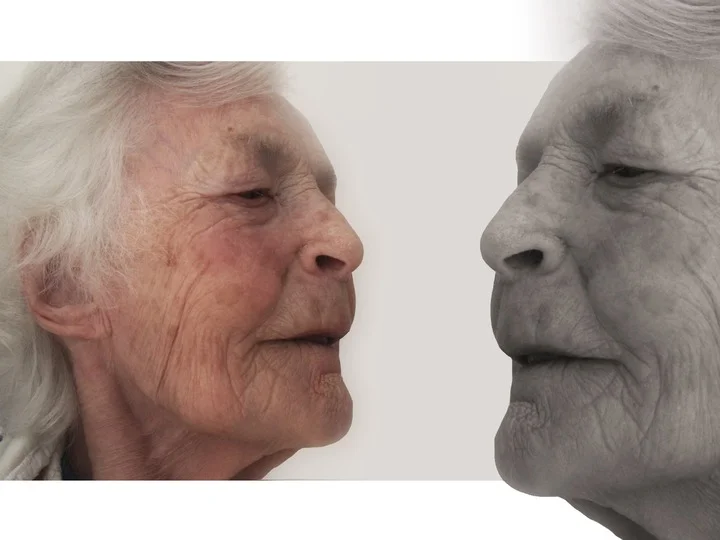My Mother with Dementia is Driving Me Crazy – How Do I Deal?
Living with a loved one who has dementia can be an emotional rollercoaster, especially when it’s your mother. The challenges and frustrations can be overwhelming, but it’s crucial to remember that your mother’s behavior is not a reflection of her true self.
In this blog post, I will share with you the typical behavior of a senior lady with dementia and discuss practical strategies to help you cope. I’ll also touch upon the importance of seeking support and self-care to navigate this difficult journey.
Understanding Typical Behavior

Dementia can bring about a series of challenging behaviors that are both disheartening and bewildering. It’s essential to recognize that these actions are symptoms of the disease and not a personal attack on you. Let’s delve into some of the common behaviors you might encounter:
1. Repetition
Your mother may repeat the same questions or stories repeatedly. For example, she might ask you what day it is or tell you the same childhood anecdote multiple times. It can be exhausting, but remember, it’s her memory playing tricks on her.
2. Accusations
It’s not uncommon for individuals with dementia to accuse their caregivers of withholding information or keeping secrets. Your mother might accuse you of not telling her things, even when you’ve shared the information multiple times. This can be frustrating, as you know you’re doing your best.
3. Outbursts
Shouting can become a common occurrence. Your mother may become exasperated with you for doubting her word or for not complying with her requests. These outbursts can be emotionally taxing.
Coping Strategies

Coping with your mother’s dementia requires patience, empathy, and a willingness to adapt to her changing reality. Here are some practical strategies to help you manage these difficult situations:
1. Distraction
When your mother’s behavior becomes challenging, one effective approach is distraction. Gently shift her focus to a different topic or activity. For example, if she accuses you of hiding something, redirect her attention by talking about a pleasant memory or suggesting a favorite hobby.
2. Joining Her World
In moments of confusion or frustration, try to enter your mother’s world. Create excuses and explanations that make sense in her reality. This can help alleviate her distress and reduce confrontations. For instance, if she insists on going to a place that no longer exists, suggest that you’ll go there together later.
3. Self-Compassion
Don’t be too hard on yourself. It’s natural to feel overwhelmed and guilty when dealing with a loved one’s dementia. Understand that her behavior is a result of the illness, not a reflection of your caregiving skills. Self-compassion is crucial in maintaining your own mental and emotional well-being.
Seeking Support

Caring for a mother with dementia can be a lonely and demanding journey, but you don’t have to go through it alone. It’s vital to reach out and seek the support you need:
1. Plead for More Help
Caring for someone with dementia can be a 24/7 job, and it’s okay to ask for help. Talk to family members, and friends, or consider hiring a professional caregiver to give you some much-needed respite. Sharing the responsibility can alleviate the burden on your shoulders.
2. Time for Yourself
You deserve a break. When you feel like you’re at your wit’s end, take some time for yourself. Even a short walk around the block or a quiet bath can provide a much-needed escape. It’s crucial for your well-being and your ability to continue caring for your mother.
The Real Struggle

Dementia is not a trivial condition; it’s incredibly taxing on both the individual and their caregivers. The constant repetition, accusations, and outbursts can be irritating and frustrating. It’s essential to recognize that these feelings are entirely normal, even though we understand that it’s the illness causing these behaviors.
1. The Illness, Not the Person
Always remember that it’s the illness, not your mother, causing these challenging behaviors. Dementia alters the brain’s function and can lead to confusion and agitation. When you’re feeling overwhelmed, try to remind yourself that this is not the real her.
2. Seeking Understanding
Understanding the science behind dementia can provide some insight into the behaviors you encounter. It’s a neurodegenerative disease that affects memory, thinking, and behavior. Knowing this might help you approach her actions with more empathy and patience.
Conclusion

In conclusion, caring for a mother with dementia is undoubtedly a challenging journey. The key is to remember that her behaviors are not a reflection of her true self but rather a result of the disease.
Coping strategies such as distraction, joining her world, and self-compassion can help you navigate these difficult moments. Seeking support from others and allowing yourself some personal time is equally important.
As you embark on this challenging journey, remember that you’re not alone. Many others are going through similar experiences. If you have any personal stories, tips, or questions about dealing with dementia, please share them in the comments section below.


Thank you for sharing your experience. We saw signs, but it came on quickly for my mother. It is challenging.
If a person with dementia is talking to people (imaginary people) who arent there, do you redirect them, reorient them and let them know that they are simply figments of their imagination. She is obsessed with these imaginary children that visit her, and sometimes she calls upset because they have “run off somewhere” and she cant find them. Do I explain the truth to her and hopefully ease her worries, or feed into the delusion and make an excuse or distraction so she will hopefully forget about it and move on to some other topic.